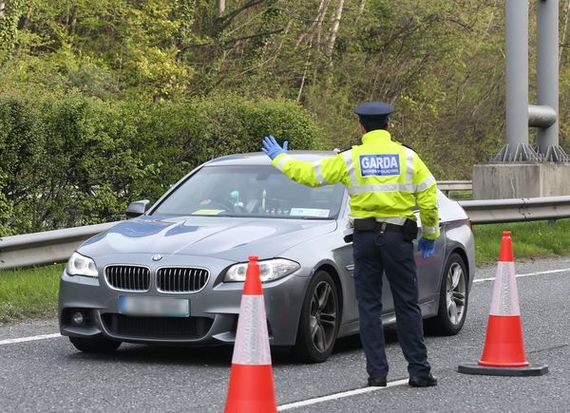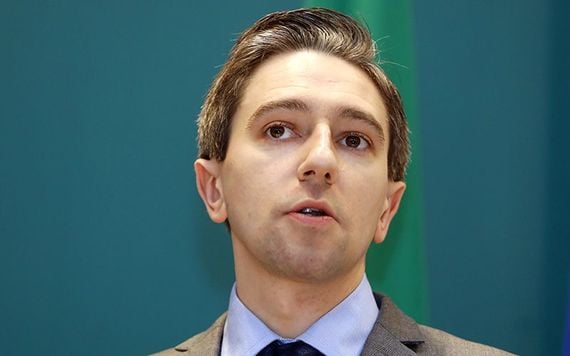One unexpected side effect of the coronavirus fear in Ireland is the way people have stopped using cash.
Withdrawals from ATMs are down to a fraction of what they used to be because everyone is afraid of handling money. People are being encouraged to use their cards, and in supermarkets, staff look offended if you try to pay in cash.
For small purchases in corner food shops, you are expected to tap instead of pulling a crumpled note out of your back pocket.
For the younger generation, this is nothing new. Our three adult kids (who are staying home with us) say they can't remember the last time they used cash anyway. But for the older generation (like yours truly) paying in cash has persisted even in the age of tapping, especially for low-cost items.
We used to scoff at predictions that cash would vanish altogether within a few years. But who will go back to it when all this is over?
A more predictable side effect of the virus fear, stay at home and the pubs being closed, is the increase in alcohol sales in supermarkets and off-licenses (liquor stores).
Sales are up close to 40 percent in the last two weeks. Between that and all the extra visits to the fridge because we're stuck at home, it's a toss-up whether we will be more in need of AA or Weight Watchers when we get through this.
That's before you count all the soda bread, banana bread and fancy cakes that are being made as home baking takes off. Which may be a good thing if it continues and it means we eat better in the future.
Read more: Coronavirus live updates: Worldwide death toll tops 100,000
Apart from these minor matters, our economy has ground to a halt and we're back to where we were after the crash with half a million people on welfare or state-supported pay.
It's too early to say how all this will play out, but we're highly vulnerable as a very open economy with a massive state debt and an agri-food sector that is now facing ruin.
One other thing that may be a permanent change here is the number of people who will want to continue working from home rather than face a long commute to an office every day.
So many people now spend their working day at a keyboard, and the realization is growing that this can be done just as effectively at home. The present situation has forced a number of the big tech companies and call centers here to facilitate this in the last few weeks.
Will their workers want to go back? Will these companies realize that forcing people into an office every day is more about control than productivity?
A permanent increase in the amount of home-working seems likely for many companies, with perhaps just a couple of days in the office every week.
There were even fewer people on the streets here last weekend despite the good weather, a clear indication that more and more people are taking the stay at home advice seriously. There was also an increased effort by the gardaí to encourage people to do the right thing.

Gardaí carrying out checkpoints in Bray. Rolling News
At the entrance to the seaside village where we live on the north side of Dublin, a checkpoint was in place last weekend and gardai were questioning motorists about why they were out.
If you did not have a good reason you were turned around and told to go home, particularly people who had driven out from the city.
Overall the mood here is still relatively calm because the numbers of new cases and deaths every day are low in comparison, not just with Italy or Spain but with the U.K. next door.
For the past few days, we have seen around 400 new cases a day and around 20 deaths a day. That is a tragedy for those involved but it is not yet a national catastrophe and so far our hospitals are coping. But that could change quickly and the experts are still predicting a dramatic surge in cases here in the next two to three weeks.
One reason for the relatively low number of new cases every day last week was the low level of testing we have been doing. Obviously the more people we test the more cases we will find. Whether our infection level is really lower than in the U.K. remains to be seen.
One sign that it might not be was the revelation that the number of nursing homes around the country with infected patients had reached over 70. Given that these are homes for old people, many with complicating medical conditions, that is very worrying.
The vulnerable residents don't leave their nursing homes so the infection must have been brought in from outside. Which would indicate that staff or visitors were to blame, however unwittingly. That's another reason why we need to ramp up testing.
Two weeks ago, the Minister for Health Simon Harris promised we would be doing 15,000 tests a day here by the end of March but last week we did just one-tenth of that, a mere 1,500 a day.

Simon Harris promised 15,000 tests a day by the end of March. Rolling News
The reason is the same as elsewhere -- we can't get enough testing kits or reagent, the chemical used in the analysis of swabs. That is very frustrating given that we have set up 50 test centers around the country and last week most were almost idle.
A particular worry is that we are not able to test enough front line medical staff in our hospitals. Last weekend, the authorities promised that this week we would reach 4,500 tests a day but that came with the caveat that it depended on being able to source supplies of the reagent. In the meantime, we have been sending test samples to labs in Germany for analysis.
We have also been running short of PPE for medical staff, which led the authorities here to do a deal with Chinese suppliers worth hundreds of millions of euro. The daily flights bringing this in from China began last week and were seen as a coup by our health service since countries everywhere are looking for PPE.
Unfortunately, when the first batch was checked it was discovered that 20 percent of it was substandard and another 15 percent was not ideal for front line use.
Given what we now know about China's disgraceful behavior throughout this crisis, this is less than surprising.
Having caused this global catastrophe in the first place, they are now trying to profit from it while posing as the world's savior and denying any responsibility. Only a regime as devious and corrupt as the Chinese Communist Party (CCP) would attempt a stunt as jaw-dropping as this.
They are now running a global media and online campaign of misinformation trying to shift the blame to the U.S. The output from CGTN, the global television network run by the Chinese government, is an example and its twisted reports on the virus outbreak even appeared last week in the sponsored content section of websites run by papers like the Irish Independent. The Chinese are now spending millions across social media platforms to push their lies.
For that reason, it's worth repeating exactly how culpable they are. First, they allowed the disgusting wildlife markets to continue across China for the last 17 years, even though that is how the deadly SARS coronavirus outbreak started in 2003.
Read more: People in Ireland warned to #StayAtHome this Easter weekend
Why? Incompetence and corruption at all levels of the CCP all the way to the top. In doing so, they were gambling with the world's health and they knew it.
When this new coronavirus outbreak began in the same way in the huge city of Wuhan they covered it up for weeks and threatened local doctors who spoke out, some of whom later died from the virus. Yet that did not stop the hypocritical President Xi and his cronies from holding ceremonies last week to honor the "martyrs" who had fought the virus.
The outbreak began in late November and was denied for several weeks before the Chinese admitted to the appearance of a new virus. Throughout December and into January they were saying it was containable and there was no evidence of human-to-human transmission.
That did not change until January 20 when they admitted that human-to-human transmission was underway. A few days later Wuhan was locked down, but by then it was too late as up to a million people had traveled out of the city during the Chinese New Year celebrations (some of them traveling internationally, including to the U.S.)
The COVID-19 genie was out of the bottle and there was no way to put it back.
On February 1, President Trump was the first to stop flights from China (and deserves some credit for doing so). By early February cases were appearing in Europe and elsewhere -- the first case in Ireland was February 29 -- and the number escalated quickly.
Showing undeserved deference to the Chinese, the World Heath Organization (WHO) played the threat down in January and early February saying there was no need for international alarm.
They did so even though their experts were not allowed into the Wuhan area until the middle of February.
Like most other countries, we were following the WHO advice which explains why we, the rest of Europe and the U.S. were so slow to prepare for the invisible deadly virus that was bearing down on us.
Only some countries close to China, like Taiwan and South Korea, were not taken in by the Chinese lies and began drastic measures to fight the virus long before anyone else. That is why they have succeeded. They had seen it all before with SARS and knew the Chinese could not be trusted.
If the rest of the world had reacted in the same way, we would not now be in this appalling state.
Read more: Ireland extends its coronavirus restrictions through May 5




Comments